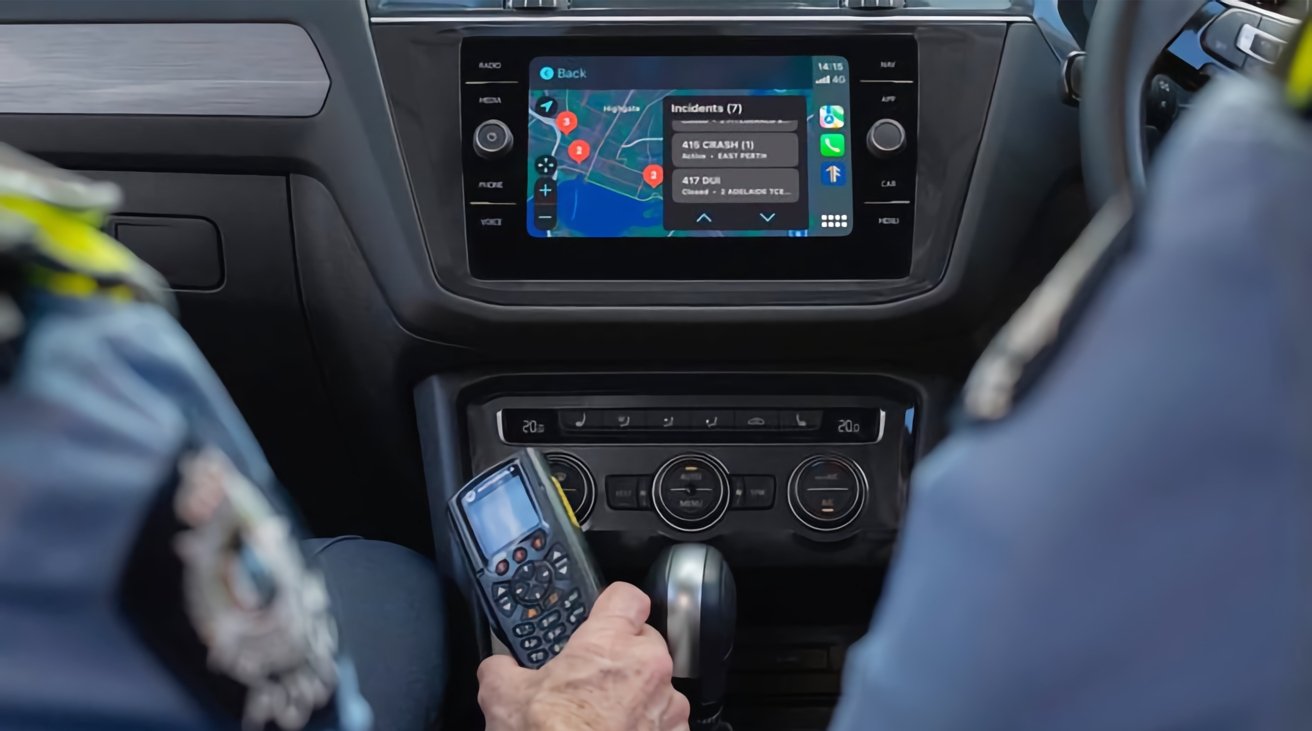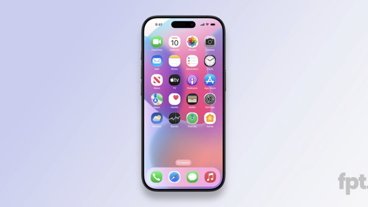Police in Australia are expanding their usage of CarPlay on the roads, with the in-car infotainment software now used to display information based on surrounding drivers' license plates.
CarPlay is commonly used by drivers to display app information on a car's built-in display, enabling them to manage music or see Apple Maps, for example. In Australia, the Police have been taking the concept further, using it for policing matters for a number of years.
In a new development, the Western Australia Police Force has seen an update to its PSCore mobile app to help with automatic number plate recognition (ANPR). Police vehicles in the country are commonly fitted with such systems, which display details about a nearby vehicle on a display, informing police officers of its history and ownership.
As part of an update, Motorola Solutions' PSCore app, which is used to handle a variety of police information tasks, will now display data from the ANPR system on the police vehicle's infotainment display, using CarPlay. This provides police with the same functionality as before, but without requiring the installation of brackets and displays that take up space.
"Real-time ANPR data helps to ensure that front-line officers are more aware of potential risks and able to make better decisions," said Superintendent Dean Snashall, Technology Portfolio, WA Police Force. The app "helps our officers to document incidents faster and more accurately, freeing more of their time to protect our communities."
So far, the CarPlay ANPR support has been rolled out to more than 80 vehicles in the force's fleet.
App-based policing
The Western Australian Police Force are well versed in the use of the PSCore app with CarPlay, and has done so for a few years already.
Back in April 2022, Motorola Solutions introduced OneForce Core, based on the PSCore app, which interfaced with CarPlay. While officers would typically use an iPhone or iPad for details of a callout or incident, OneForce Core would streamline the data to the essential points, displaying them in the vehicle using CarPlay.
Officers could also interact with the app using CarPlay, by touching the screen or making verbal commands.
PSCore has been installed on more than 6,000 mobile devices used by the WA Police Force, with it used to share critical information between officers via one interface.
In 2024, it was enhanced with more capabilities to respond to more incidents, including family violence reports. This includes automations to publish family violence reports to the Department of Communities in real time, speeding up referrals to support agencies while police are still in attendance at the scene.
 Malcolm Owen
Malcolm Owen

-m.jpg)






 Oliver Haslam
Oliver Haslam
 Thomas Sibilly
Thomas Sibilly
 Marko Zivkovic
Marko Zivkovic

 Wesley Hilliard
Wesley Hilliard

 Andrew Orr
Andrew Orr



-m.jpg)






8 Comments
The UK police have had a camera on the front of their squad cars for years. When they come up behind you, they know immediately if the road tax has been paid, the MOT inspection is current and there is a valid insurance policy in force. They also know the gender of the mandatory listed drivers on the insurance policy. So if a girl friend is driving the boy friend's car and no females are on the policy, there will be a pull over for clarification. Another feature is if there is no insurance, they have the option to take the car to the crusher right then.
So big brother is watching every where.
I've long wondered why all license (registration) plates or perhaps the vehicles themselves do not have a transponder so vehicles can be identified from a distance, like IFF transponders on aircraft and ships. The US should also consider having a country-wide vehicle identity system instead of every state having dozens of stupid vanity plates. Why do people have an emotional attachment to a license plate? The vehicle identity tag should be like a MAC ID on Ethernet or a GUID used in software. Build the identity tag into all vehicles, including buggies, bicycles, scooters, skate boards, etc. In other words, the 3rd Gen AirTags.
I know, boo hoo hoo on privacy, but public road space should be treated like airspace and access to it more tightly controlled. In today's highly connected environment the notion of privacy is largely an illusion. With improvements in AI and improvements in vision, voice, devices pinging connection points that have geo metadata, and other forms of surveillance, detection, and tracking systems including toll tag readers, the ability to move around the country anonymously is declining very rapidly. Hey, it's not like I'm advocating for a universal system to remotely disable vehicles, but that is probably not a bad idea now that I think about it.
This probably requires a bit more thought ...
One will often see a little box perched high on a road side (including interstates) pole aimed down at the traffic. It reads newer vehicles ID as the vehicle passes by and transmits the information to wherever or whoever..